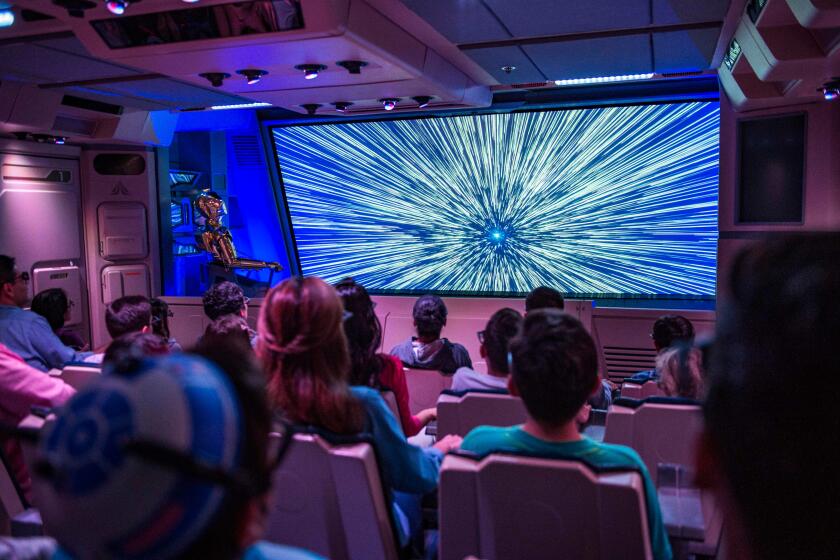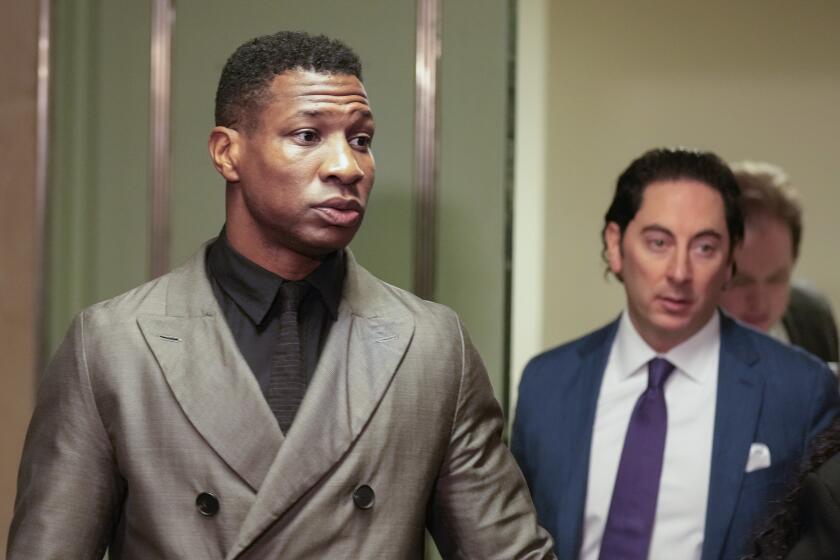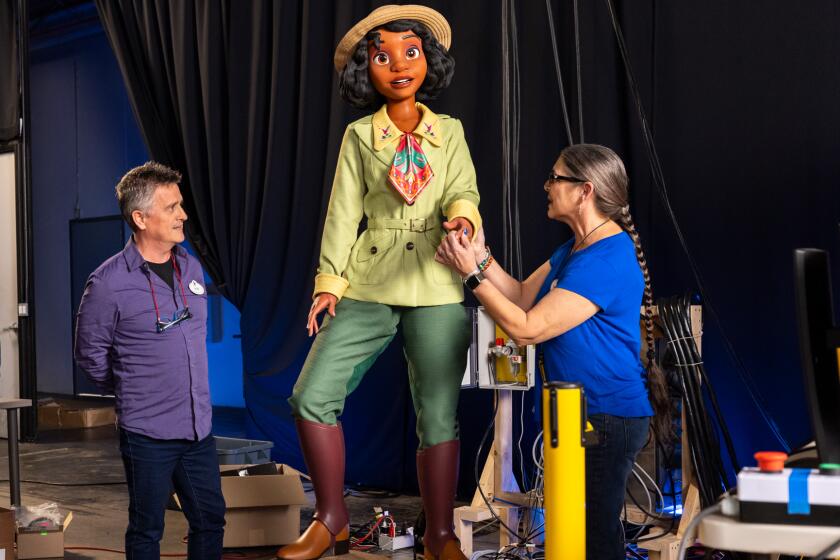It only took 20 episodes, but the bad guy’s plan finally makes some sense after Arrow’s ‘Genesis’
“Arrow’s” fourth season has truly been a tale of two series: the one that lands its emotional arcs with all the precision of a top-of-the-line boxer throwing jabs, and the one that’s struggling to rein in its unwieldy magic-heavy A-plot, out of breath and hoping to be saved by the bell at the end of the round.
“Genesis” is a microcosm of those two series in a 60-minute span. Everything that’s so right about the conclusion to the war between the brothers Diggle matches up with everything confusing and unsatisfying about the series’ stumbling attempts to shoehorn magic into a previously grounded show about masked men and women making tough choices on rooftops.
Given the episode’s heavy-handed theme of choosing light over darkness, I’ll start with the good.
Aside from some pacing issues, Andy vs. John has been one of the season’s best arcs, a payoff on the ghost that’s haunted John since the series’ opening chapters. Much of John’s character is based off the original sin of Andy’s death. His drive to keep family close and place it above his masked lifestyle, a feat his fellow Arrow cave residents can’t seem to pull off, has always been motivated by his brother’s murder, a failure he has unfairly blamed on himself.
Diggle has always been the show’s best judge of character, from his ability to see the good intentions underneath Oliver’s early, reckless behavior to his natural lie detector screaming red around characters like Huntress. His optimism, while somewhat blunted by his military background, was only ever outshone by Felicity’s.
But Andy is his blind spot, and to see Diggle pay so many prices for the simple hope that he could believe in his brother has made for excellent television. David Ramsey has had great moments in this series, and the simple shock that spread across his face after shooting his brother ranks high up there. It’s a perfect understanding of the character, even after everything Andy did to deserve the bullet that ended him, John is still wearing an expression that screams “What did I just do?” He even lies to Lyla about the specifics of their final confrontation, a move that seems a little more like Oliver than it does our man Dig.
Something just broke inside this man. The Diggle plot is smooth, providing some of the best action sequences of the year in “Genesis,” while allowing Eugene Byrd to get in one final smug, sneering performance as Andy. This is the ultimate expression of a little brother taking all too much glee in finally getting the upper hand over the older sibling, and Andy knows how to push every one of his brother’s pressure points. From twisting John about Laurel’s death to mocking him over his refusal to kill to protect his family, it only makes sense that Andy’s penchant for trash talk finally pushes John over the edge.
Was the fact that John’s release was part of a larger trap painfully obvious? Sure, but I’m not blaming the parts for the whole. The Diggle story line wrapped up in the way that it needed to. With Laurel dead, Thea trapped underground and John now possibly unreliable and guilt-wracked, this leaves Oliver possibly headed toward a one-on-one throwdown with Damien Darhk in the season’s finale, which would be a nice change from the last two years’ gang-warfare-style closing acts.
Speaking of Darhk, I will never get tired of Neal McDonough’s swagger-fueled moustache-twirling. That opening scene of him shrugging through a double homicide was great. But the nature of his powers and his plans continue to force the series to take some odd approaches.
However, this is the second or third time the show has chosen to convey magic as little more than fisticuffs inside one’s mind (the battle for Sara’s soul played out as a pier six brawl back when Constantine showed up last year), and it kind of doesn’t work. The season-long theme of Oliver wrestling with his internal leanings toward light or darkness are fine, playing it out as a deciding factor in his ability to combat Darhk’s magic seemed a little on the nose. Nothing really changed between Oliver’s conversation with Esrin Fortuna (who certainly seemed a hell of a lot like Zatanna, but I have no idea if the series actually plans on roping in the Justice League’s resident sorceress) and his clash with Darhk. Yet somehow the sound of Felicity’s voice allowed him to sense the light inside and repel Darhk’s abilities? That’s Saturday morning cartoon storytelling.
I don’t have a problem with Felicity being the anchor that keeps Oliver more hero than killer. I have a problem with the show doing nothing to establish that. Felicity doesn’t say anything in her one scene with Oliver between his failed magic training and his latest punch-up with Damien, so I’m left to believe that the mere thought of her allows him to embrace the light, or something. Felicity and Oliver’s bond can certainly be the reason he’s able to battle back against Darhk’s evil incarnate, but the lovebirds need to do something active, a reconciliation, an understanding of why they can’t be together right now. If this is the only explanation we’re going to get of how Oliver can stand toe-to-toe with the bad guy, it robs Mr. and Mrs. Queen-Smoak of their agency.
As for Darhk’s plans, and the big hint that this was the episode that would reveal the secrets of the Genesis story line ... well, what did we learn here that we didn’t already know? Darhk was plotting to end the world and rebuild it after hiding a chosen few in some kind of protective underground area. That’s been evident for a while. Sure now we know that plan involves nuclear warheads and overt Bible references (with Thea trapped in his Noah’s ark), but what exactly changed? Why is he doing this? Bueller?
I’m going to take Not Zatanna’s advice and choose light over dark here, accepting that the Diggle story line’s conclusion was far too strong to get bogged down in the messiness of Oliver’s dabbles with magic. But this show is about Oliver, and sooner or later, if his plotline is dark, that’ll overtake the rest of the season’s light.
Left in the Quiver:
- I am aware that Esrin Fortuna is a DC Comics character, or at least my Google search history is aware. I just don’t care. If it walks like Zatanna and it talks like Zatanna, it’s Zatanna. (I may have also just rewatched “Young Justice,” so I really want more Zatanna).
- I also recently watched “8 Mile” for the first time in a decade, so I’m proposing a crossover where Diggle is just helping us all finally get revenge on Eugene Byrd, who stole Eminem’s girl as Wink in that movie.
- There were no flashbacks? Did anyone miss them?
- Because I’m overrun with references this week, did anyone else think of the weird suburban hell dimension from “Angel” once Thea picked up on the inherent creepiness and sound loops of her vacation?
@JamesQueallyLAT realizes he sounds old by referencing “8 Mile” and “Angel” in the same review, but don’t worry, I can name all the successive “Buffy” big bads off the top of my head and have 95% of “The Shield’s” episode titles memorized as well, so you know it’s no fluke, I totally watched too much TV in the 2000s.
More to Read
The biggest entertainment stories
Get our big stories about Hollywood, film, television, music, arts, culture and more right in your inbox as soon as they publish.
You may occasionally receive promotional content from the Los Angeles Times.







